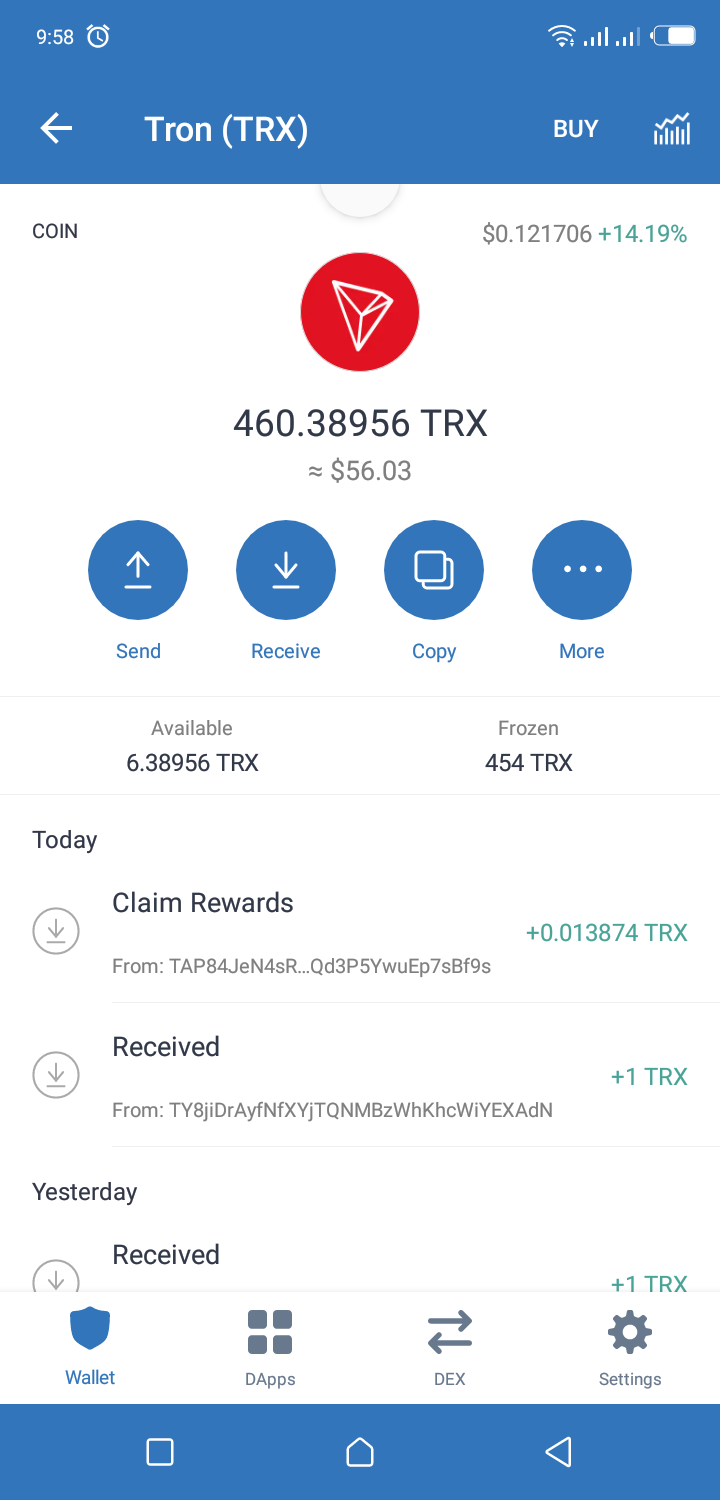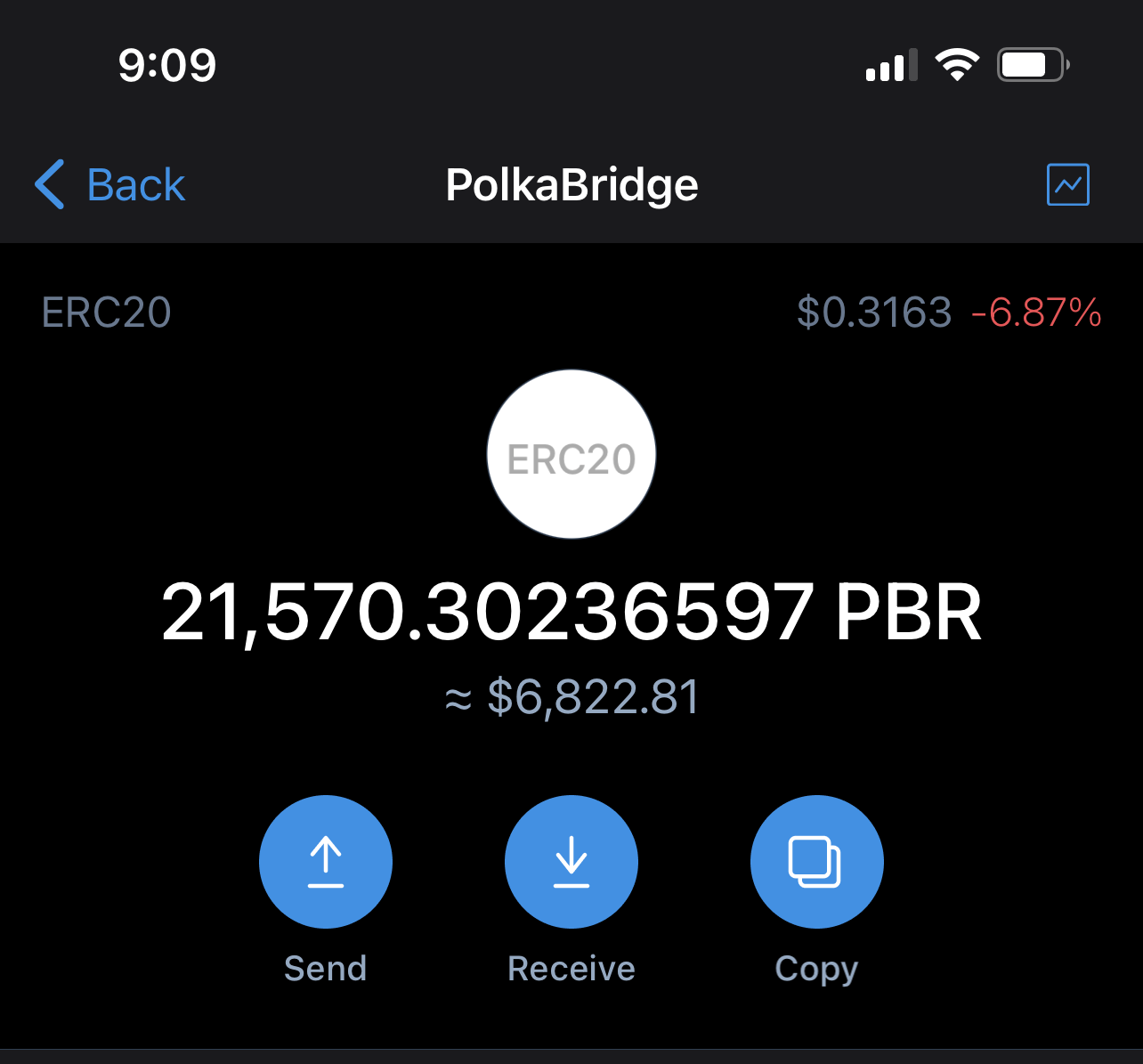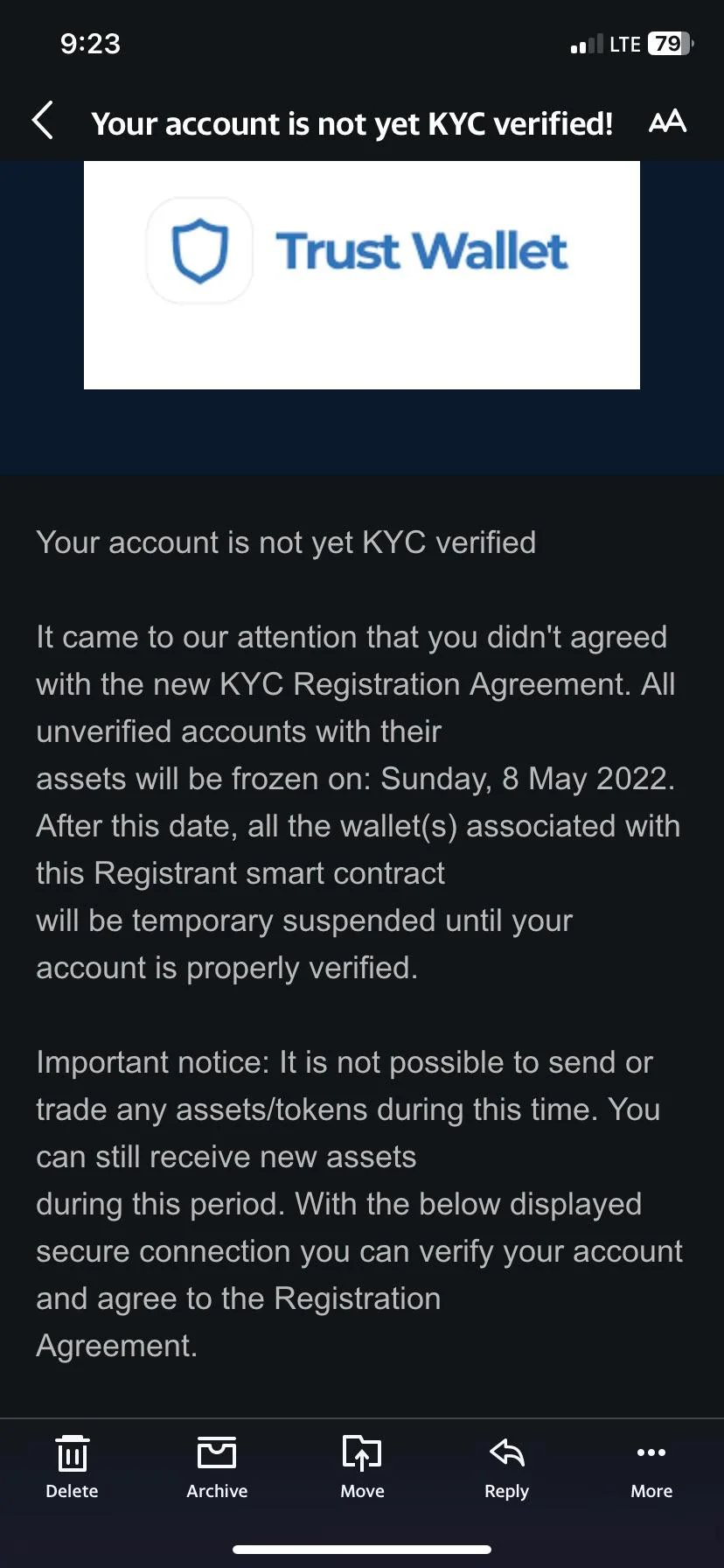No, Trust Wallet cannot freeze your account. It is a decentralized wallet, giving users full control over their assets with no central authority having the ability to access or freeze accounts.

Understanding Decentralization in Trust Wallet
Trust Wallet is a prime example of decentralized technology applied to personal finance and cryptocurrency management. Its operation principles and features starkly contrast with those of centralized platforms, offering users a unique blend of autonomy, security, and transparency. Here’s how Trust Wallet embodies the essence of decentralization and how it impacts user control over assets.
The Nature of Decentralized Wallets
- Self-Custody: Decentralized wallets like Trust Wallet allow users to have full custody of their digital assets. Unlike centralized wallets, where the service provider maintains control over the private keys, in decentralized wallets, the private keys are stored locally on the user’s device.
- Enhanced Security: The decentralized nature minimizes risks associated with centralized hacks or unauthorized access to a central repository of funds. Users are responsible for their wallet’s security, reducing potential points of failure.
- Blockchain Interaction: Decentralized wallets directly interact with blockchain networks, enabling users to send, receive, and manage their cryptocurrencies without intermediaries.
How Trust Wallet Differs from Centralized Platforms
- User Privacy: Trust Wallet does not require personal information for setting up or managing the wallet, offering an anonymous way to handle cryptocurrencies. In contrast, centralized platforms often require detailed personal information for KYC (Know Your Customer) processes.
- No Account Freezes: Unlike centralized platforms, which can freeze accounts for various reasons, Trust Wallet cannot freeze accounts or access user funds due to its decentralized architecture.
- Direct Blockchain Access: Users interact with blockchain networks directly, ensuring transactions are transparent and immutable. Centralized platforms, however, manage these interactions behind the scenes, which might obscure transaction details from the user.
User Control Over Assets
- Private Key Ownership: The cornerstone of decentralization in Trust Wallet is the exclusive ownership of private keys by the user. This means only the user can access and control their funds.
- Recovery Phrase: Trust Wallet provides a recovery phrase during the initial setup. This phrase is the ultimate key to the user’s assets, allowing wallet restoration on any device while maintaining full control over the funds.
- Freedom to Transact: Users have the freedom to send, receive, and exchange cryptocurrencies at their discretion, without approval from a central authority. This autonomy empowers users to make instant decisions regarding their assets.

Security Measures in Trust Wallet
Trust Wallet is designed with a strong focus on security to ensure that users’ digital assets are protected against unauthorized access and potential vulnerabilities. The wallet employs several layers of security measures, including encryption, private key management, recovery phrases, and regular updates and audits. Here’s a closer look at each of these critical components that contribute to the overall security of Trust Wallet.
Encryption and Private Keys
- Local Storage: Trust Wallet stores private keys locally on the user’s device, rather than on a central server. This significantly reduces the risk of hacking since the keys are not accessible through the internet.
- Advanced Encryption: The private keys are encrypted using industry-standard algorithms, providing a robust layer of security. This encryption ensures that even if a device is compromised, the attacker cannot easily access the user’s private keys without the encryption passphrase.
Recovery Phrases and Their Importance
- Backup and Restoration: Upon creating a wallet, users are provided with a 12-word recovery phrase. This phrase acts as a backup mechanism, enabling the wallet’s restoration on another device in case the original device is lost, stolen, or damaged.
- Sole Ownership: The recovery phrase is known only to the user, emphasizing the importance of keeping it secure and private. Writing it down and storing it in a safe place is crucial, as anyone with access to this phrase can potentially access the user’s funds.
Regular Security Updates and Audits
- Continuous Improvement: The Trust Wallet team regularly releases updates to the app, addressing any newly discovered vulnerabilities and enhancing existing security features. Users are encouraged to keep their app updated to benefit from the latest security enhancements.
- Third-Party Audits: To ensure the highest level of security, Trust Wallet undergoes periodic audits by reputable third-party security firms. These audits help identify potential security issues, ensuring they are addressed before they can be exploited by malicious actors.
Common Reasons for Access Issues
Access issues with digital wallets like Trust Wallet can stem from various factors, ranging from user error to technical glitches. Understanding these common causes can help users prevent potential problems or address them more efficiently if they occur. Here are some of the most frequent reasons users might experience difficulty accessing their Trust Wallet.
Mistyped Recovery Phrases
- Incorrect Input: The most common mistake leading to access issues is incorrectly entering the recovery phrase. Each word in the 12- or 24-word recovery phrase must be entered in the exact order it was presented during the wallet setup. Even a single mistyped word can prevent access.
- Confusion Between Similar Words: Some words in the recovery phrase might be similar or have multiple spellings. Mistaking one for another is a typical error that can lead to access issues.
Lost Access to Device
- Physical Loss or Theft: Losing the device on which your Trust Wallet is installed can immediately block your access to your digital assets. Theft adds the risk of unauthorized attempts to access your wallet if the device is not adequately secured.
- Device Failure: Hardware malfunctions or software crashes can also result in lost access to your Trust Wallet, highlighting the importance of having a backup, such as noting down your recovery phrase.
Network Congestions and Their Effects
- Delayed Transactions: High traffic on the blockchain network, especially during peak times for popular cryptocurrencies, can slow down transactions. While not a direct access issue to the wallet itself, it can affect the ability to send or receive funds in a timely manner.
- Increased Fees: Network congestion can lead to higher transaction fees. Users might find themselves unable to transfer out their assets without allocating more for fees, indirectly restricting access to their funds.
How Trust Wallet Protects Users
Trust Wallet is designed with a strong emphasis on user security and privacy, employing various measures to ensure that users’ assets and personal information are protected. Here’s an overview of how Trust Wallet achieves this, focusing on user anonymity and privacy, the non-custodial nature of the wallet, and the encryption techniques used for private key storage.
User Anonymity and Privacy
- No Personal Information Required: Trust Wallet does not require users to submit personal information to create or use the wallet. This approach helps maintain user anonymity, making it difficult to associate wallet addresses with real-world identities.
- Private Transactions: While transactions on the blockchain are public, Trust Wallet helps maintain user privacy by not requiring any link between the wallet addresses and the user’s identity, enhancing privacy in the process.
No Custody Over User Funds
- User-Controlled Assets: Trust Wallet is a non-custodial wallet, which means the control over the funds rests entirely with the user. The wallet does not hold or have access to the user’s cryptocurrencies, ensuring users have full sovereignty over their assets.
- Direct Blockchain Interaction: Transactions made through Trust Wallet are executed directly on the blockchain, with the wallet serving merely as an interface. This further ensures that users have complete control without intermediary interference.

Encrypted Private Key Storage
- On-Device Encryption: Private keys, which are critical for accessing the blockchain assets, are encrypted and stored locally on the user’s device. This method ensures that only the user has access to their funds.
- Security Standards: Trust Wallet uses industry-standard encryption techniques to secure private keys, protecting them from unauthorized access even if the device is compromised.
- Recovery Phrase: In addition to encrypted private key storage, Trust Wallet provides users with a recovery phrase during the initial setup. This phrase is crucial for recovering the wallet and must be stored securely by the user, adding an extra layer of security.
Trust Wallet’s approach to protecting users centers around privacy, user control, and secure storage practices. By ensuring user anonymity, employing a non-custodial model, and encrypting private keys on the user’s device, Trust Wallet provides a secure and private environment for managing cryptocurrencies. These features highlight Trust Wallet’s commitment to user security and privacy, making it a preferred choice for individuals looking for a reliable cryptocurrency wallet.